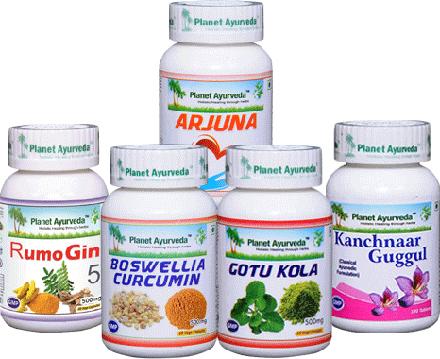Abstract
The word hernia is derived from the latin word which means rupture. A hernia is defined as an abnormal protrusion of an abdominal organ or tissue through a weak spot in the abdominal wall. The hernias are caused due to either the weakness of abdominal muscles or due to increased abdominal pressure. The most common sites of hernia include the inguinal, femoral, and umbilical area and sites of previous incision such as surgeries, etc. Femoral hernia along with its causes, symptoms, ayurvedic management will be described in detail in the following article.
Introduction
Hernia are classified into various types such as inguinal, umbilical, and femoral, etc. Femoral hernia is a condition when the abdominal contents pass through the femoral ring, transverse the femoral canal and come out through the saphenous opening. The condition of femoral hernia is more common in females as compared to males. The causes of the muscle weakness or increase in the abdominal pressure could be various which will be described as follows.

Causes
The exact cause underlying the condition of femoral hernia is not known in most of the cases. There could be various reasons estimated for the occurrence of femoral hernia such as weakening of the area of the femoral canal, etc. The weakness of the abdominal muscles can be congenital or acquired. The congenital cases include weak abdominal muscles by birth. In cases of acquired ones, the weakening of the walls of muscles can be caused due to straining for prolonged periods or due to extensive force, etc. There can be a variety of reasons that can result in overstraining such as -
- Postpartum or after delivering a baby
- The patients suffering from chronic constipation are more prone to the condition of femoral hernia.
- Very heavy weight lifting.
- The condition of obesity can also contribute to this condition.
- Chronic cough, bronchitis, tuberculosis, etc.
- Urinary obstruction
Symptoms
There could be various symptoms varying from person to person. The most common clinical features are
- Pain - The patients suffering from femoral hernia experience mild discomfort in the affected area. Usually, due to the mildness of pain, the patient may ignore the pain or it might remain unnoticed until it gets strangled. In the cases of strangulated femoral hernia, there is a sudden pain at the site of hernia which immediately spreads over the abdomen with vomiting.
- Swelling - A small globular swelling can be observed at the site of femoral hernia.
Diagnosis
The diagnosis of femoral hernia will mainly include the physical examination of the patient. The physical examination will consist of observing the following features. The femoral hernia sac lies below the inguinal ligament. There is dilation of the superficial epigastric iliac veins. Zeeman's method is used to properly examine the state of femoral hernia. Invagination test is done to reveal the empty inguinal canal. After confirming the diagnosis, the patient should be treated without any further delay.
Ayurvedic Aspect
The condition of hernia can be correlated to the concept of antra vridhi in the ayurvedic perspective. The causative factors behind the condition of antra vridhi are mentioned to be heavy weight lifting, falling from height, etc. Ayurveda believes to rectify the disease right from its roots rather than just managing the symptoms. The consumption of factors that aggravate or cause an imbalance in the levels of the tridosha (vata, pitta, kapha) will result in the development of various diseases.
The vitiated vata dosha targets the large gut along with the small gut and causes protrusion and may further cause swelling in the scrotum. This forms a sac and it is distended and is known as antra vridhi. The ayurvedic management of antra vridhi deals with balancing the levels of the imbalance doshas and reducing the shotha or swelling. There are various ayurvedic formulations that help to manage this condition such as boswellia curcumin, gotukola capsules, kanchnaar guggul, etc.
HERBAL REMEDIES FOR FEMORAL HERNIA BY PLANET AYURVEDA
The modern line of treatment manages the cases of hernia with surgery and there is no role of conservative treatment. Planet Ayurveda prepares medicinal formulations that contain natural herbs beneficial for the health of the body. Planet Ayurveda is providing various preparations of natural herbs such as boswellia curcumin, gotukola capsules, kachnaar guggul, rumogin 5 capsules, arjuna capsules, etc which are prepared using authentic ways and provide great results in improving the health of the patient of Femoral hernia.
All the herbal products manufactured here are free from chemicals, preservatives, starch, additives, colors and fillers. These products are hundred percent natural and are formulated by MD Ayurvedic doctors with deep knowledge of Ayurveda and many years of experience. The formulations are prepared strictly according to the procedures described in the samhitas (classical texts) and therefore are very effective in promoting the health of the patient and managing the diseased state effectively.


The Herbal Products Suitable for Managing the condition of Femoral Hernia is described in detail as follows
- Boswellia curcumin
- Gotukola capsules
- Kanchnaar guggul
- Rumogin 5 capsules
- Arjuna capsules
1. BOSWELLIA+CURCUMIN
Planet ayurveda prepares Boswellia curcumin using natural extracts of haridra (Curcuma longa) and shallaki (Boswellia serrata).This combination contains natural analgesic and anti-inflammatory properties. These medicinal properties will help to manage the pain and various discomforts experienced by the patient suffering from femoral hernia.
Dose - 1 capsule twice daily, after meals with plain water.
2. GOTU KOLA CAPSULES
Planet ayurveda is preparing gotu kola capsules using the pure and natural extracts of gotukola (Centella asiatica). Gotu kola is also known as mandukaparni. It is very effective in pacifying the excessive vata dosha from the body. It is also helpful in improving the condition of the patients suffering from femoral hernia.
Dosage : 1-2 Capsules twice daily, with plain water, after meals.
3. KANCHNAAR GUGGUL
Kanchnaar guggul is prepared by planet Ayurveda by combining various beneficial medicinal herbs such as Kachnar Bark (Bauhinia variegata), Amalaki (Emblica officinalis), Haritaki (Terminalia chebula), Bibhitaki (Terminalia bellerica), Ginger (Zingiber officinale), Black Pepper (Piper nigrum), Pippali (Piper longum), Varuna Bark (Crataeva religiosa), Cardamom (Elettaria cardamomum), Cinnamon (Dalchini), Guggul (Commiphora mukul), etc. The Kanchnaar guggul is beneficial in promoting the growth of healthy cells. The intake of kanchnaar guggul in appropriate doses helps to improve the condition of femoral hernia up to a great extent
Dose: One to two tablets to be taken two or three times a day with warm water after meals.
4. RUMOGIN 5 CAPSULES
Planet ayurveda prepares Rumogin 5 capsules using the herbal extracts of various beneficial ayurvedic herbs such as Haridra (Curcuma longa), Sonth (Zingiber officinale), Shallaki (Boswellia serrata), Maricha (Piper nigrum) and Pippali (Piper longum), etc. This combination of herbs will help to improve the strength of the abdominal muscles which will ultimately improve the condition of femoral hernia.
Dosage : 1-2 Capsules once or twice daily after meal with plain water.
5. ARJUNA CAPSULES
Arjuna capsules prepared by Planet Ayurveda comprises natural extract of the ayurvedic herb arjuna (Terminalia arjuna). It helps to improve the blood circulation of the body along with various other health benefits. It helps to reduce the chances of strangulation in hernia. Hence, also improving the health of the patient.
Dosage : 1-2 Capsules twice daily, with plain water, after meals.
Conclusion
In a nutshell, it can be concluded that femoral hernia can be managed very well by following the principles of ayurveda. Ayurveda believes to rectify the disease right from its roots rather than just managing the symptoms. So, by restricting the causative or aggravating factors and following a healthy diet along with the administration of ayurvedic formulations such as boswellia curcumin, gotukola capsules, kachnaar guggul, rumogin 5 capsules, arjuna capsules, etc. the condition can be managed well. The quality of life of the patients suffering from femoral hernia can be improved to a great extent.

